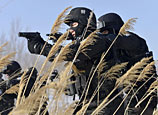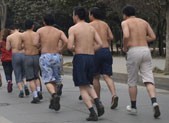
Thirdly, cyber attacks are transnational, anonymous and deceptive with their source often difficult to identify. Releasing irresponsible information will not help solve problems, Geng added.
Statistics show that Chinese military end users connected to the Internet frequently come under cyber attack from abroad. In these cases, source IP addresses suggest that the majority of them come from the United States, Geng said.
He added, "but we do not point fingers at the United States based on the above-mentioned findings, and every country should deal with cyber security in a professional and responsible manner."
Additionally, he said, to address criticism from foreign statesmen and media outlets about hacking, the Chinese side would like to resolve the issues through joint law enforcement and consultations with other countries.
According to Geng, the Chinese Ministry of Public Security has assisted more than 50 countries and regions in investigating some 1,100 cases of cyber crime since 2004. Also, China has established bilateral law enforcement cooperation with more than 30 countries and regions, including the United States, Britain, Germany and Russia.
Lodging one-sided media accusations will not help solve problems, but only jeopardize existing cooperation, he said.
Jin Canrong, an American studies expert with the Renmin University of China, said the real motive behind the U.S. hacking accusation is to seek an upper hand in Sino-U.S. relations.
It signaled that the United States is looking for fresh topics over which to criticize China in an effort to achieve dominance, according to Jin. As the United States is losing its traditional superiority, the cards it can play are getting fewer and fewer, but accusing China of cyber attacks becomes a new one.
Against the backdrop of fiscal constraints, the U.S. military fears cut-backs in budgets, hence whipping up fear about new threats such as alleged cyber attacks from China, particularly when traditional security threats look less and less daunting, the academic said.
Furthermore, Jin added, the U.S. government is also under pressure from business, as many U.S. companies, keenly aware of competition from China, are concerned about losing their core technologies and unduly assume China is stealing from them.

















 Employees run half-naked for not meeting sales quotas
Employees run half-naked for not meeting sales quotas


![]()
